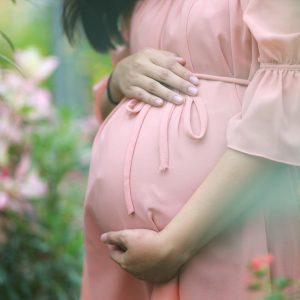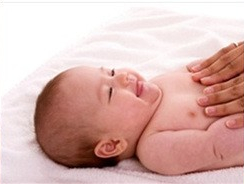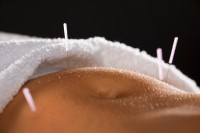Problems with fertility are thought to effect about 1 in 10 couples of reproductive age. Infertility is officially diagnosed after a couple has been trying to have a baby for one year, appropriately timing intercourse to match the female’s ovulatory cycle.
There are many causes of infertility, and issues regarding infertility can be related to either female factors (present in about 35% of infertile couples), male factors (present in another 35% of infertile couples), a combination of male and female factors (present in 20% of couples) and it can completely unexplained (10% of cases).

Maternal age is one of the most common causes of infertility in women. Women are born with all of the eggs they will ever have – females do not produce more eggs as they age. Female fertility peaks in the mid to late 20s and maternal age older than 35 is a significant cause of infertility in females.
 Ovulatory difficulties represent another cause of infertility in women, and women who only ovulate sporadically have a more difficult time getting pregnant. Ovulatory difficulties can be related to high stress levels, drastic weight loss or gain, excessive exercise or anorexia and hormone imbalances. Additionally, one common disorder (called PCOS or polycystic ovarian syndrome) can be a cause of infertility that is directly attributable to ovulation difficulties.
Ovulatory difficulties represent another cause of infertility in women, and women who only ovulate sporadically have a more difficult time getting pregnant. Ovulatory difficulties can be related to high stress levels, drastic weight loss or gain, excessive exercise or anorexia and hormone imbalances. Additionally, one common disorder (called PCOS or polycystic ovarian syndrome) can be a cause of infertility that is directly attributable to ovulation difficulties.
Women who suffer from this disease have multiple cysts on their ovaries that interfere with ovulation.
 Besides ovulatory difficulties, female factor infertility can result from “structural” issues with the female’s anatomy. Problems with the uterus can prevent implantation of a fertilized egg. These can include a bifurcated uterus, where the uterine wall is misshapen, polyps or cysts in the uterus. Cervical mucous, which facilitates the sperm’s journey to the egg can also be a cause of infertility. “Hostile” cervical mucous can occur naturally, or because of fertility drugs and can also result from an allergic reaction to sperm. Finally, scar tissue that results from previous trauma, sexually transmitted diseases, abdominal surgery or endometriosis, is another cause of infertility in women.
Besides ovulatory difficulties, female factor infertility can result from “structural” issues with the female’s anatomy. Problems with the uterus can prevent implantation of a fertilized egg. These can include a bifurcated uterus, where the uterine wall is misshapen, polyps or cysts in the uterus. Cervical mucous, which facilitates the sperm’s journey to the egg can also be a cause of infertility. “Hostile” cervical mucous can occur naturally, or because of fertility drugs and can also result from an allergic reaction to sperm. Finally, scar tissue that results from previous trauma, sexually transmitted diseases, abdominal surgery or endometriosis, is another cause of infertility in women.
 Chinese Medicine practitioners believe many female reproductive problems can be resolved if the menstrual cycle is smooth, regular and symptom free. Therefore, the main focus of Traditional Chinese Medicine treatment is to regulate hormones so the changes that happen in a woman’s body throughout her cycle do not distract from the ripening and releasing of her eggs, and the thickening and receptivity of her uterus lining. By improving egg quality and strengthening the lining of the womb, Chinese Medicine can increase a woman’s chance of successful implantation.
Chinese Medicine practitioners believe many female reproductive problems can be resolved if the menstrual cycle is smooth, regular and symptom free. Therefore, the main focus of Traditional Chinese Medicine treatment is to regulate hormones so the changes that happen in a woman’s body throughout her cycle do not distract from the ripening and releasing of her eggs, and the thickening and receptivity of her uterus lining. By improving egg quality and strengthening the lining of the womb, Chinese Medicine can increase a woman’s chance of successful implantation.
In fact, TCM can explain virtually all of the conditions which underlie infertility, based on 2,000 years of scholarly, time-tested principles. As a result, most of these conditions can be successfully treated with TCM. For example, endometriosis is thought to be a problem related to Blood Stasis, although it is often complicated by deficiency of Kidney Yang or Damp Phlegm. By treating this underlying disorder, we can reverse endometriosis and restore fertility. In fact, even if your infertility is unexplained by Western fertility specialists, we can help.
 Because imbalances vary widely within individuals, our treatment is highly individualized. In addition to acupuncture and taking herbs, lifestyle changes are crucial-proper diet, stress reduction and regular appropriate exercise need to accompany treatment. All of these methods taken together will greatly enhance your ability to conceive.
Because imbalances vary widely within individuals, our treatment is highly individualized. In addition to acupuncture and taking herbs, lifestyle changes are crucial-proper diet, stress reduction and regular appropriate exercise need to accompany treatment. All of these methods taken together will greatly enhance your ability to conceive.

